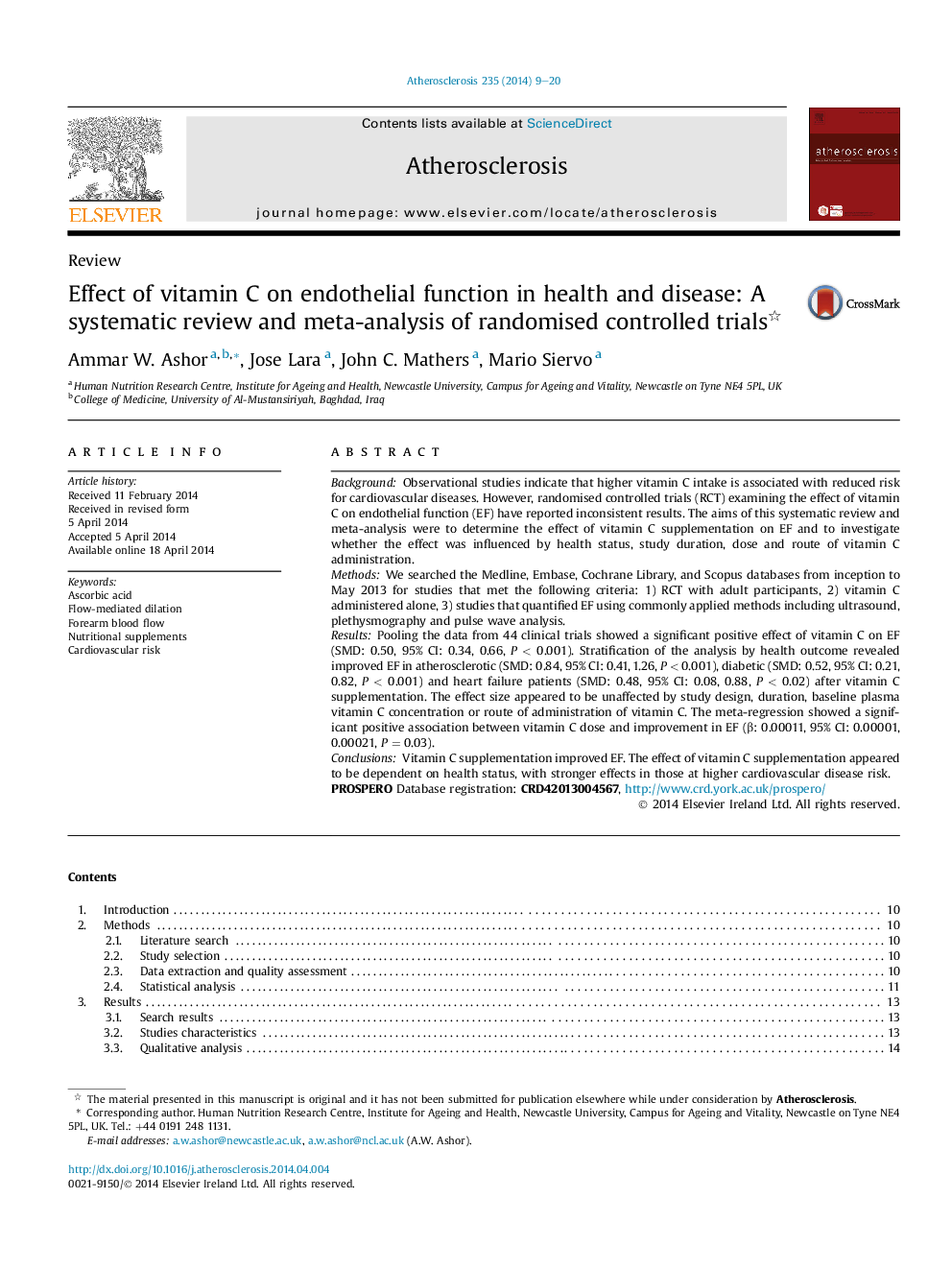| Article ID | Journal | Published Year | Pages | File Type |
|---|---|---|---|---|
| 5945525 | Atherosclerosis | 2014 | 12 Pages |
â¢Vitamin C supplementation improved endothelial function (EF).â¢The effect of vitamin C appeared to be dependent on health status.â¢Stronger effects in those with cardio-metabolic disorders.â¢No effect of vitamin C was observed in healthy volunteers.â¢Vitamin C dose greater than 500 mg/d was associated with beneficial effects on EF.
BackgroundObservational studies indicate that higher vitamin C intake is associated with reduced risk for cardiovascular diseases. However, randomised controlled trials (RCT) examining the effect of vitamin C on endothelial function (EF) have reported inconsistent results. The aims of this systematic review and meta-analysis were to determine the effect of vitamin C supplementation on EF and to investigate whether the effect was influenced by health status, study duration, dose and route of vitamin C administration.MethodsWe searched the Medline, Embase, Cochrane Library, and Scopus databases from inception to May 2013 for studies that met the following criteria: 1) RCT with adult participants, 2) vitamin C administered alone, 3) studies that quantified EF using commonly applied methods including ultrasound, plethysmography and pulse wave analysis.ResultsPooling the data from 44 clinical trials showed a significant positive effect of vitamin C on EF (SMD: 0.50, 95% CI: 0.34, 0.66, P < 0.001). Stratification of the analysis by health outcome revealed improved EF in atherosclerotic (SMD: 0.84, 95% CI: 0.41, 1.26, P < 0.001), diabetic (SMD: 0.52, 95% CI: 0.21, 0.82, P < 0.001) and heart failure patients (SMD: 0.48, 95% CI: 0.08, 0.88, P < 0.02) after vitamin C supplementation. The effect size appeared to be unaffected by study design, duration, baseline plasma vitamin C concentration or route of administration of vitamin C. The meta-regression showed a significant positive association between vitamin C dose and improvement in EF (β: 0.00011, 95% CI: 0.00001, 0.00021, P = 0.03).ConclusionsVitamin C supplementation improved EF. The effect of vitamin C supplementation appeared to be dependent on health status, with stronger effects in those at higher cardiovascular disease risk.PROSPERO Database registration: CRD42013004567, http://www.crd.york.ac.uk/prospero/
